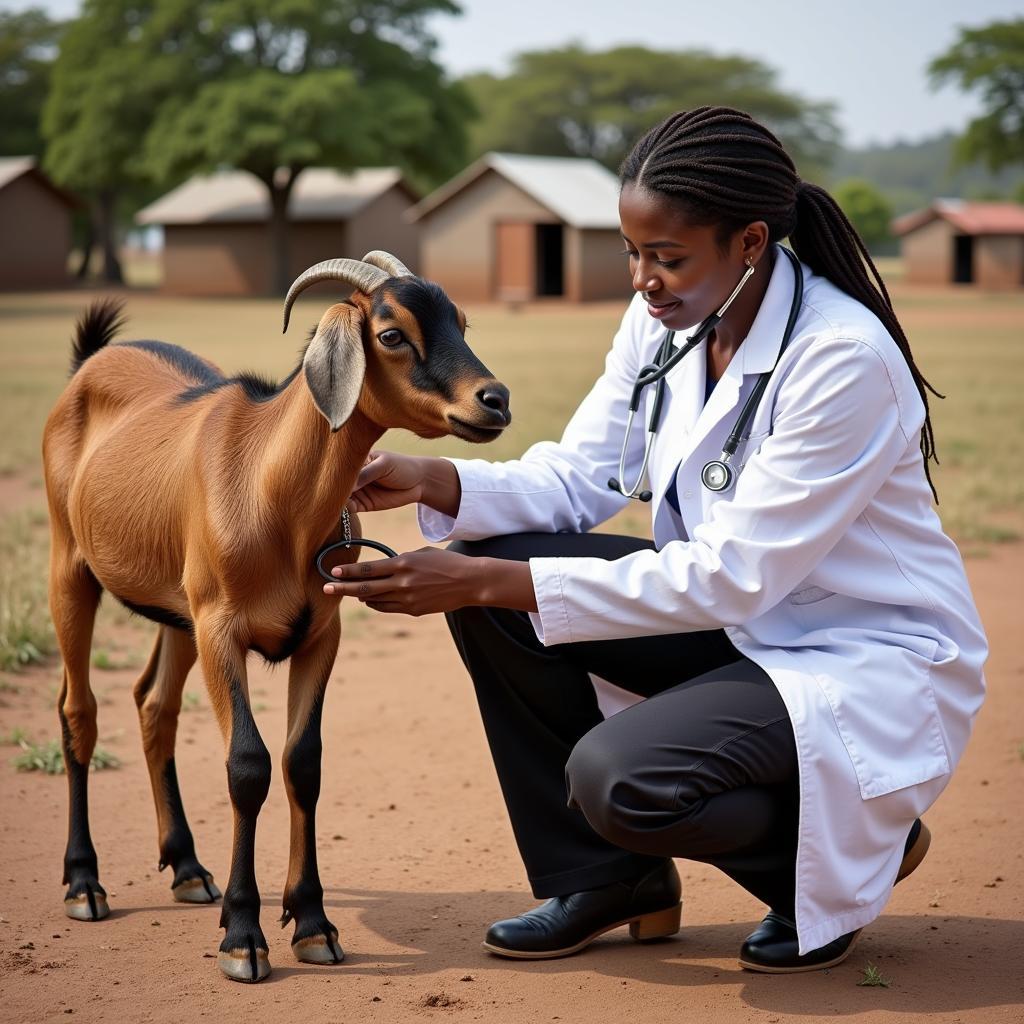African Domestic Animals: A Journey Through Livestock and Culture
African Domestic Animals play a crucial role in the continent’s diverse cultures and livelihoods. From the arid Sahel to the lush Congo Basin, these animals provide sustenance, transportation, and economic stability for millions. This article explores the rich tapestry of African domestic animals, their significance, and their impact on the lives of people across the continent.
The Importance of African Domestic Animals
Across Africa, domestic animals are more than just livestock; they are deeply woven into the fabric of society. Cattle, goats, sheep, chickens, and donkeys represent wealth, status, and tradition. They are central to ceremonies, dowries, and social structures. Their value extends beyond mere economic utility, serving as symbols of cultural identity and heritage. For instance, the possession of large herds of cattle can signify prosperity and influence within certain communities. Learn more about some fascinating African equids.
The significance of these animals is not solely cultural. They form the backbone of many rural economies, providing vital sources of milk, meat, wool, and hides. These products not only sustain local communities but also contribute to national and international trade.
Exploring the Diversity of African Domestic Animals
Africa boasts an incredible array of domesticated species, each uniquely adapted to the continent’s diverse environments. From the hardy camels of the Sahara to the nimble goats of the Ethiopian highlands, these animals demonstrate remarkable resilience and adaptability. The variety is astounding, encompassing everything from poultry like chickens and guinea fowl to larger livestock like cattle and camels.
Some breeds are particularly notable for their unique characteristics. For example, the Ankole-Watusi cattle are known for their exceptionally long horns, while the Nguni cattle are prized for their colorful and distinctive coat patterns. These specialized breeds often play critical roles in local traditions and agricultural practices. Did you know about the plight of African donkeys China?
Challenges and Future of African Domestic Animals
Despite their importance, African domestic animals face numerous challenges. Climate change, disease outbreaks, and land degradation pose significant threats to their well-being and productivity. Furthermore, changing economic landscapes and globalization can disrupt traditional livestock practices.
However, there is hope. Innovative strategies, such as improved veterinary care, sustainable grazing practices, and the development of drought-resistant breeds, offer promising solutions. Investing in research and development, coupled with community-based initiatives, can ensure the continued prosperity of these vital animals and the people who depend on them. More information about African desert cat.
“Investing in the health and well-being of African domestic animals is an investment in the future of the continent,” says Dr. Aminata Sow, a veterinarian specializing in livestock health in Senegal. “These animals are essential for food security, economic growth, and cultural preservation.”
 Veterinarian Examining a Goat in Africa
Veterinarian Examining a Goat in Africa
Conclusion
African domestic animals are integral to the continent’s rich tapestry of life. Their significance spans cultural, economic, and social spheres, impacting communities in profound ways. Addressing the challenges and supporting the sustainable development of livestock practices is crucial for ensuring the continued prosperity of both the animals and the people who depend on them. Discover intriguing stories about African kids 6 years old. Learn more about how African birds in India are impacting ecosystems.
FAQ
- What are the most common African domestic animals? Cattle, goats, sheep, chickens, and donkeys.
- How do African domestic animals contribute to the economy? They provide milk, meat, hides, and wool, supporting livelihoods and trade.
- What are the biggest threats to African domestic animals? Climate change, disease, and land degradation.
- How can we support the future of African domestic animals? Through investment in research, improved veterinary care, and sustainable practices.
- What is the cultural significance of African domestic animals? They represent wealth, status, and are central to many traditions and ceremonies.
- What are some unique African cattle breeds? Ankole-Watusi and Nguni cattle.
- How do changing economic landscapes impact livestock practices? Globalization can disrupt traditional practices and introduce new challenges.
Need help with your African domestic animals? Contact us! Phone: +255768904061, Email: [email protected] Address: Mbarali DC Mawindi, Kangaga, Tanzania. We offer 24/7 customer support.
